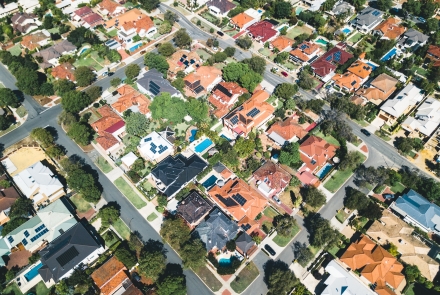
Photo by Maximillian Conacher on Unsplash
Before the budget: What the experts think
Crawford School of Public Policy’s brilliant early career researchers share their thoughts on what the Federal Budget needs to focus on for the year ahead.
On Tuesday 11 May, Treasurer Josh Frydenberg will hand down the 2021-22 budget; and with Australia’s federal election around the corner, many are wondering how the Morrison government will seek to navigate the COVID-19 economic recovery.
So, what are some policy gaps the government needs to address? What economic recovery measures will be put in place? Will this budget change the nation for the better? Here’s what our three experts had to say.
Women’s empowerment should go beyond reducing the gender wage gap
Yinjunjie (Jacquelyn) Zhang - Research Fellow at the Tax and Transfer Policy Institute (TTPI)
“Through the efforts made to narrow the gender pay gap, women’s economic situation has improved greatly in the past few decades. However, women are facing new challenges in many other areas inside and outside the household.
Our research shows that domestic violence against women has not disappeared simply by increasing economic power for women. Introducing policies to assist women in leaving abusive relationships is a good start. However, the government and society as a whole need to broaden the horizon of women’s empowerment.
Empowering women should aim to do more than just reduce the gender pay gap. Government budgets also need to influence cultural change to fully acknowledge and encourage women surpassing men in many social roles traditionally dominated by men.”
Encouraging a clean energy future
Dr Mousami Prasad - Research Fellow at the Energy Transition Hub and the Grand Challenge Program on Zero Carbon Energy for Asia Pacific
“The Australian Government’s fuel tax credit (FTC) scheme provides businesses with credit for the use of liquid fuels such as petrol and diesel. As part of the scheme, businesses can claim credit for their use of petrol and diesel in specified applications, including heavy vehicles, powering auxiliary equipment of a heavy vehicle, agriculture, mining, light vehicles used off public roads or on private roads.
The government should slash the FTC, or at least revise the fuel categories, so that it does not incentivise the use of emission intensive fuels. Currently, the FTC effectively subsidises the cost of petrol and diesel, which limits the incentive to minimise this type of fuel use.
The last budget saw the Australian government support natural gas projects through a ‘gas-fired recovery’ support package with $53 million allocated over 4 years. However, gas use is declining. For example, since the release of the budget on 6 October 2020, the use of gas in electricity generation has declined 32 per cent compared to the same period last year.
In the manufacturing sector, gas use has declined since 2013-14. As natural gas is a fossil-fuel, there should be no subsidy for gas in any form, be it exploration, production, transportation or consumption.”
Investing in new technologies has multiple benefits for Australia
Andrea Fahey – PhD student and political expert at the National Security College
“The 2021 Edelman Trust Barometer found that climate change ranked as the second biggest issue for Australians, even above the risks posed by the pandemic. With the 2019-2020 bushfire season still weighing on the minds of many Australians, the 2021-22 budget should offer a clear policy to protect the country from the devastating effects of this phenomenon.
At the same time, any policy needs to guarantee energy security, affordability, and stability of the electricity grid, so Australians can continue their day-to-day activities. This means taking a comprehensive approach - the promotion of investment in renewable sources is not enough.
The ongoing investment in new fuel technologies such as hydrogen and low emissions fossil fuel technologies such as carbon capture and storage (CCS) is also vital. CCS projects offer an important collaboration between government and industry, utilising field experience and expertise. These projects even encourage cooperation with our neighbouring countries.
Just last week, Kevin Gallagher, Santos Chief Executive Officer posed the idea of using the depleted Bayu-Undan gas field as a CCS project. In this way, Australia could accomplish a net-zero emissions target, and generate much needed revenue for Timor-Leste. It is important to expand the role of the Climate Solutions Fund to include more strategies that benefit all Australians as well as the region.”
Updated: 16 July 2024/Responsible Officer: Crawford Engagement/Page Contact: CAP Web Team











